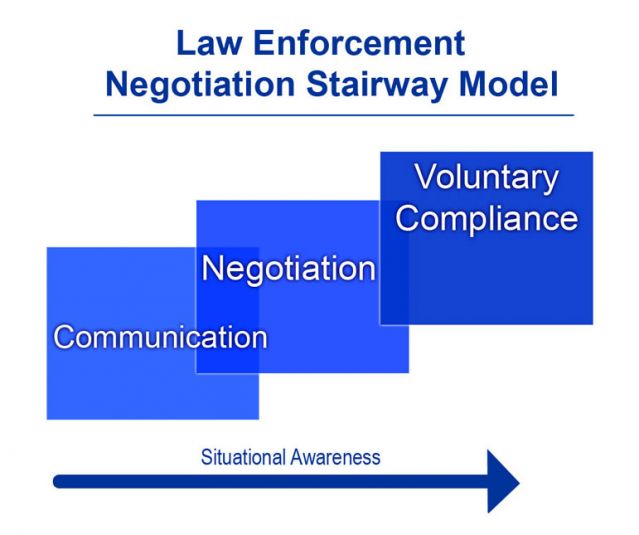New research reveals what makes law enforcement hostage negotiators effective.
Recent research conducted on the skills law enforcement crisis and hostage negotiators believe that makes them effective has helped bridge the gap between the “science” and the actual “practice” of crisis negotiation. The findings of the study, published in Police Practice and Research (Johnson, Thompson, Hall, & Meyer, 2017), identifies the skills that not only work during these tense, (potentially) volatile, and emotionally driven situations but also what these crisis negotiation experts also find to be ineffective.
The study provides the insight from nearly 200 law enforcement negotiators and below are some of the key findings.
First Impressions
There is a substantial amount of research in psychology connecting first impressions with building rapport and demonstrating empathy. Rapport and empathy are also both important to getting what you want.
First impressions are not just for blind dates either. In crisis situations the implications are much more serious and have a legitimate impact on the rest of the interaction. The research on this is referred to thin slice methodologyand I recommend you read more it (here for example). Remember, as you will see from the results first impressions involve verbal and nonverbal communication.
Law enforcement hostage negotiators place a significant amount of importance on how they look and how they begin their interaction with the subject (the person they are negotiating with).
- Rarely do they say their rank (93% do not)
- The majority do not say they are a negotiator (only 27% do)
- The majority either “always” or “usually” (combined 64%) wear something that identifies themselves as negotiators
So what does this mean? If the negotiator is seeking to de-escalate the situation, how he or she begins the interaction is critical to setting that tone right away. Consider the difference between the following:
Read the rest of the article [HERE]
Get access to the research report [HERE].

